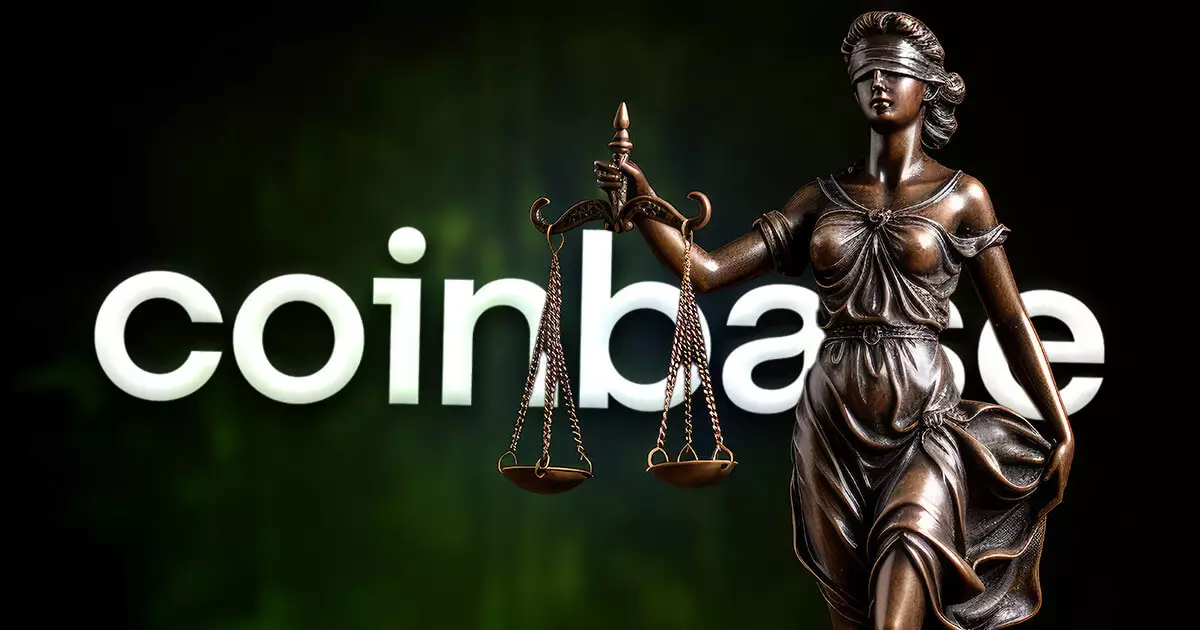In a significant legal maneuver, BiT Global has taken aim at Coinbase, the titanic player in the American cryptocurrency trading landscape, through a lawsuit filed on December 13. This legal action posits that Coinbase, in a move that reeks of anti-competitive behavior, has unfairly yanked wrapped Bitcoin (WBTC) from its platform, ostensibly to clear the way for its proprietary wrapped Bitcoin offering, Coinbase Wrapped Bitcoin (cbBTC). This lawsuit opens the door to broader conversations about market competition, regulatory scrutiny, and the ethical considerations at play within the rapidly evolving cryptocurrency sector.
Legal Grounds: Allegations of Antitrust Violations
At the heart of the lawsuit lies BiT Global’s assertion that Coinbase has leveraged its dominant market position to suppress competition and entrench its own products. This allegation is reminiscent of classic antitrust claims where larger entities exploit their advantages to eradicate competitors. According to BiT Global, the removal of WBTC was not merely an operational decision rooted in adherence to specific listing standards, as Coinbase purports. Instead, it implies a calculated strategy intended to manipulate the market for wrapped Bitcoin, thereby establishing monopolistic control over this segment.
The crux of BiT Global’s argument is compelling, especially when it cites Coinbase’s profit motives. The complaint reveals that Coinbase might plan to implement transaction fees related to cbBTC only after neutralizing its competition, which would allow it to extract higher revenues from users. By eliminating WBTC, BiT Global contends that Coinbase seeks to predetermine market conditions that favor its own assets, thereby stifacing decentralized financial innovation and consumer choice.
On notable occasions, Coinbase has pointed towards its “listing standards” to justify its decision to delist WBTC. BiT Global, however, challenges this rationale, arguing that the recent embrace of cryptocurrencies with little utility—such as meme coins like PEPE and MOG—undermines the validity of those standards. This inconsistency raises pressing questions regarding the integrity of Coinbase’s operational guidelines and introduces skepticism about whether the delisting was genuinely based on quality or merely a financial calculation to monopolize wrapped Bitcoin.
Furthermore, the lawsuit shines a spotlight on how Coinbase’s decision-making may be swayed by competitive dynamics rather than standard operational procedures. By including relatively obscure meme coins while excluding a widely recognized asset like WBTC, Coinbase’s credibility regarding its trading criteria is brought into sharper focus.
The Context: Shifts in Wrapped Bitcoin Dynamics
BiT Global’s legal offensive comes in the wake of tumultuous events affecting WBTC, particularly its custodianship, following BitGo’s decision to diversify custody control among several organizations. This newfound arrangement has prompted significant concern among decentralized finance (DeFi) communities, primarily due to Justin Sun’s involvement with BiT Global. Although DeFi protocols such as MakerDAO and Aave retained their use of WBTC as collateral despite these concerns, the episode underscores the fragility and scrutiny surrounding wrapped Bitcoin’s operational stability and credibility.
As the traditional landscape of wrapped Bitcoin evolves, Coinbase’s rapid development of cbBTC has turned the situation into an intriguing contest. Launched on both Ethereum and Layer 2 network Base, cbBTC has garnered attention rapidly, achieving a market capitalization of approximately $2 billion. However, WBTC still holds a prominent position in the market; it currently boasts a valuation of about $13.7 billion, despite experiencing a significant downturn in token supply.
As BiT Global seeks to halt the delisting of WBTC through its lawsuit, the implications extend beyond the courtroom, igniting key discussions about decentralization and competitive fairness in the crypto space. Should this lawsuit gain traction, it might usher in a wave of increased regulatory scrutiny, compelling everyone from custodians to trading platforms to re-evaluate their competitive practices.
The repercussions of this legal dispute may set critical precedents for how cryptocurrency exchanges operate and interact with one another, especially in a market increasingly crowded with competing wrapped products. Ultimately, the outcome of BiT Global’s lawsuit could either reinforce an anti-competitive landscape where larger entities can impose their will, or cultivate a marketplace that nurtures innovation and respects the tenets of decentralized finance—a space that promises to redefine traditional economic paradigms.

